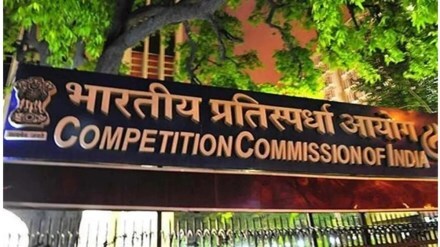By Dhanendra Kumar
Since the Competition Act came into force in 2009, markets have undergone significant developments. With technology, the new age economy, and digitisation, data has acquired enormous value. To reap fuller benefits of market economy and gains of economic efficiency, some of the tools need to be sharpened.
The Centre constituted the Competition Law Review Committee (CLRC) to recommend the changes needed, and based on its report, the Competition Amendment Bill 2022 was brought up before Parliament on August 5, 2022. The Bill was then referred to the Standing Committee on Finance, headed by Jayant Sinha, on August 16. The committee invited suggestions from stakeholders, industry bodies, lawyers and economists, and held discussions with the Competition Commission of India and various ministries. The committee’s report was laid before Parliament on December 13.
Also Read: Parliamentary panel recommends major changes to Competition Bill
Let us analyse some of the key recommendations with corresponding provisions of the Bill.
Settlement and commitment
The Bill proposed instituting a mechanism of ‘settlements’ and ‘commitments’, like several other mature jurisdictions for competition regulation, to improve the effectiveness of the CCI’s enforcement actions involving anti-competitive vertical agreements and abuse of dominance cases. While ‘commitments’ can be made before the completion of the investigation by the director general, settlements can be made after the DG has concluded the investigation and before the CCI issues a final order, after considering the nature, gravity, and impact of the offences, and hearing the DG and other parties.
Several other commercial regulatory actions, like SEBI’s Settlement Scheme, and income tax’s Vivad se Vishwas, also provide for the compounding of civil offences. It can help achieve speedier market corrections and free up resources for the CCI and concerned parties. Recovery of penalties imposed by the CCI, which so far has been minuscule with most cases stuck in the courts, may also improve.
Also Read: Settlement a good option
The Standing Committee made several suggestions for further fine-tuning these areas. These included (i) not making the admission of guilt a pre-condition, (ii) limiting the ‘rights of third parties’ during commitment and settlement discussions to preserve confidentiality, (iii) allowing applicants to either withdraw the application or seek changes in the terms, (iv) preserving consumers’ right for compensation, and (v) including cartels in the coverage for settlement.
While the suggestions look reasonable, there is controversy over the last suggestion—the inclusion of cartels. There is already a provision of leniency under the competition law, which may be diluted if the settlment route for cartels is incorporated.
Cartelisation is considered a most pernicious offence, of criminal nature in many jurisdictions, like the US where it carries prison sentences. In fact, several CEOs and senior executives have received prison sentences under such provisions in mature jurisdictions.
In a case of price-fixing of parking heaters, Volker Hohensee, former president of Espar Inc, was charged under such provisions, and another executive was detained in a Spanish prison. In Canada, the maximum imprisonment for cartelisation can go up to 14 years, and in the UK, up to five years. Several EU jurisdictions, including Denmark, France, Greece, and Germany, also view cartelisation as a serious criminal offence.
Deal value thresholds
The committee recommended significant modifications to the `2,000-crore deal value threshold prescribed by the Bill. This is logical, but has raised some concerns globally as it would bring high-value offshore M&A transactions with an Indian nexus under the radar of the CCI.
The committee noted that ‘the Bill does not provide guidance on how the deal value is to be calculated, and the meaning of direct, indirect and deferred consideration’ and recommended specifying the methodology of calculating it.
Revision of the jurisdictional threshold to review mergers and acquisitions was necessary to cover digital M&As. Digital companies may possess assets such as valuable data, technology, market information, etc.
Incidentally, ‘killer acquisitions’ by large corporations are a trend that needs to be regulated by the CCI. Regarding local nexus and application of deal value threshold, which is linked to local nexus, the committee stated that it should be defined in the Act itself. The target company must have substantial business operations in India.
IPR as defence of abuse of dominance
Holders of Intellectual Property Rights (IPR) derive certain benefits under the Act. The Act allows the use of IPR rights as a defence in cases of anti-competitive agreements. However, it does not allow this defence in abuse of dominant position (AOD) cases. CLRC recommended that in cases involving AOD, this defence may be provided. The committee recommended that it would be desirable for the CCI to specifically take into consideration the rights that a party may have in relation to the reasonable exercise of its IPR when dealing with AOD cases.
Control and material influence
The committee approved the standard for the establishment of “control” over a target as the ability to exercise “material influence”. However, for better clarity, it recommended that the CCI must specify what would constitute “material influence” through its regulations. This could, for example, include guidance in strategic decisions on the level of shareholding, special rights, board representation, structural/financial linkages, and other arrangements required to breach the material-influence threshold.
Competition law has become integral to the functioning of businesses and has a great impact on growth. It would be very useful to spruce up the architecture of the Act to meet the current and emerging challenges. It may also be useful if as a standard practice, to undertake market reviews after landmark orders in various sectors to gauge the correctional impact achieved. Some of the other important steps that may be considered urgently could be the expeditious appointment of chairperson, CCI, as there is no quorum at present. Also, with the abolition of the Competition Appellate Tribunal and hearing of appeals now by National Companies Law Appellate Tribunal (NCLAT), it may be considered helpful to have a dedicated bench for competition cases.
‘With research inputs from Aditya Trivedi, research associate, COMPAD Llp’
